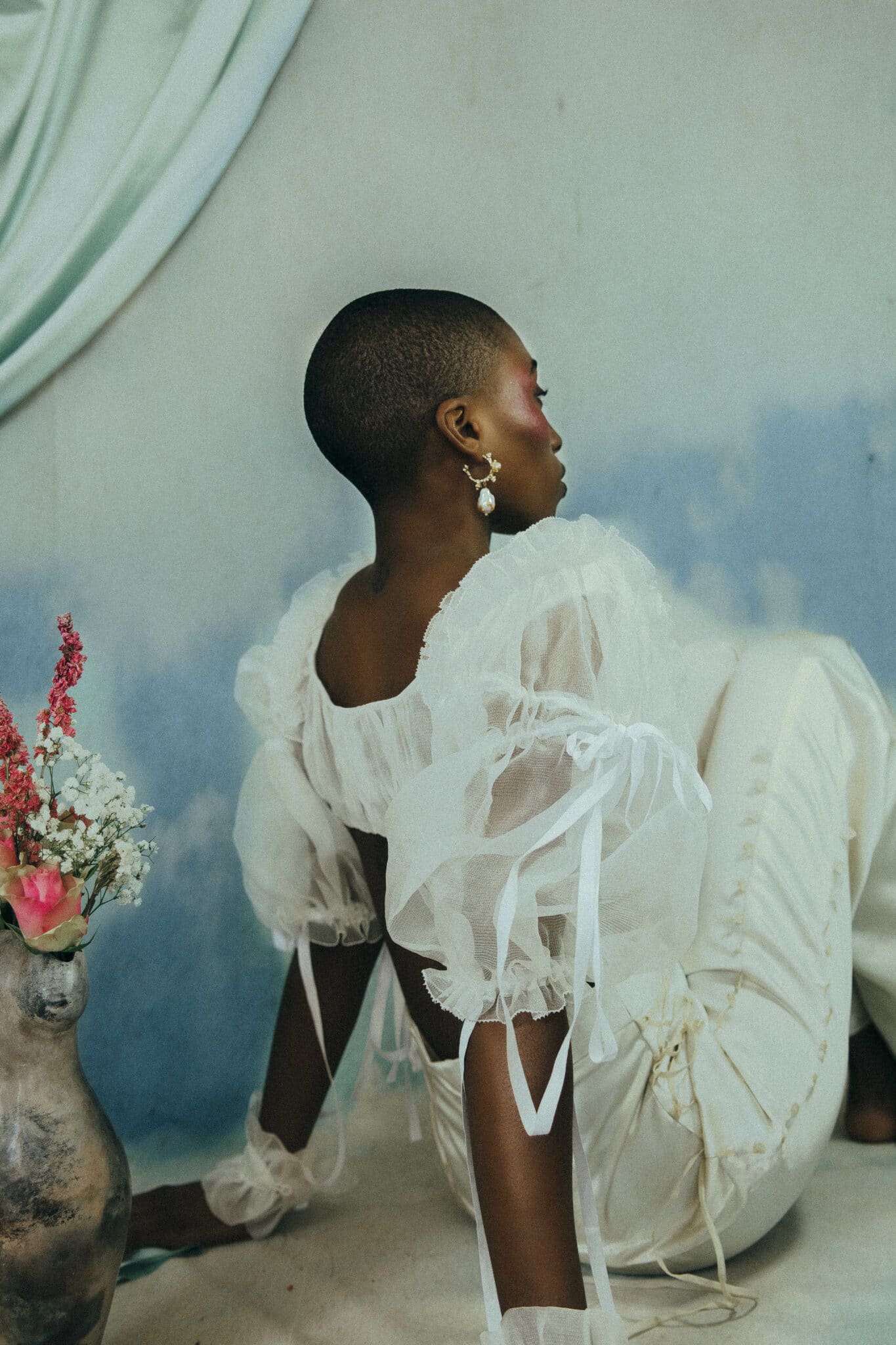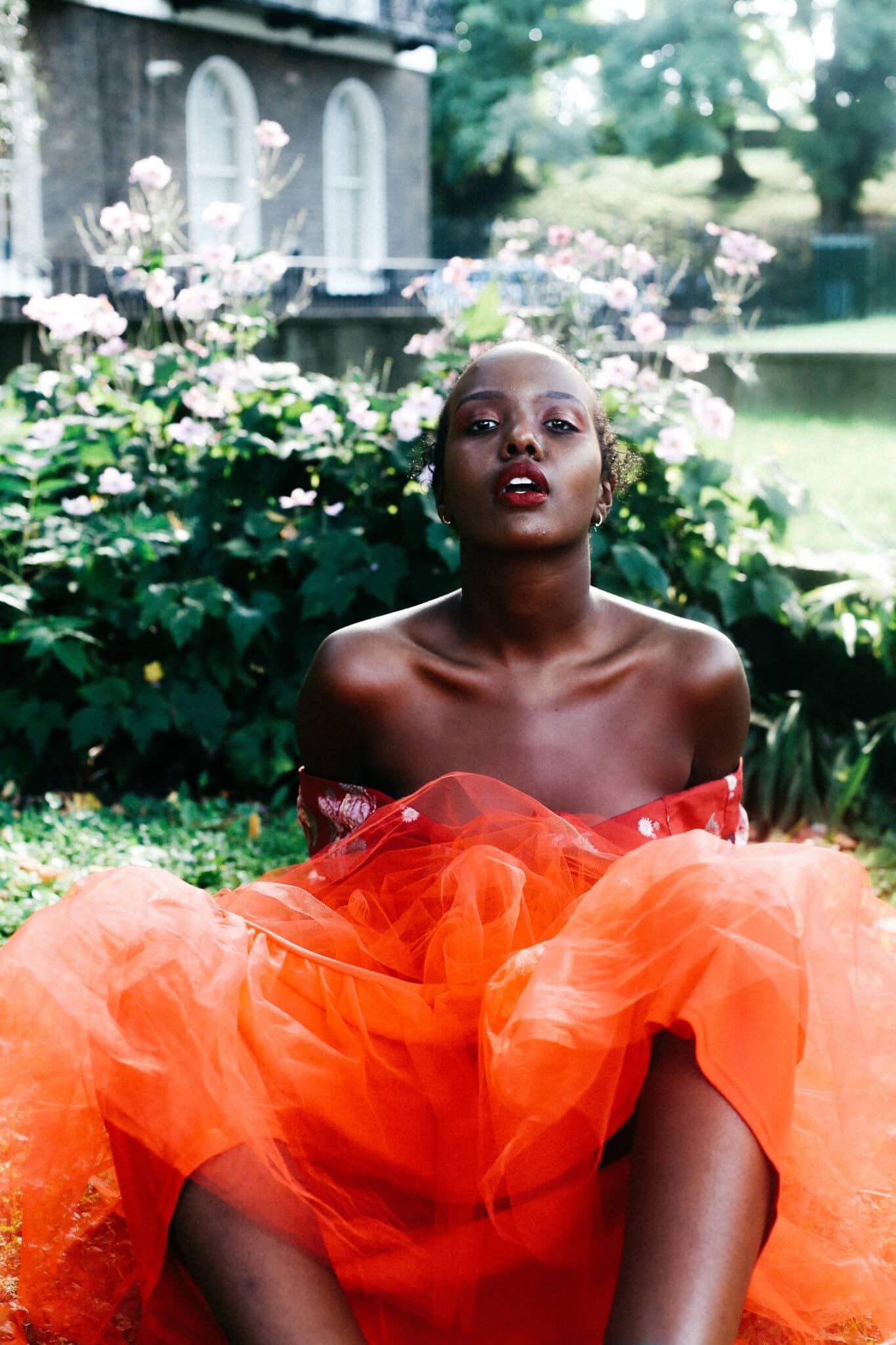The JOY Issue
Beautiful Souls – How Shingi Rice Captures Joy through Photography
Janice Faith and Shingi Rice talk about beauty, love, and joy.
How did you come up with the name bluespit?
You know how Childish Gambino came up with his rapper name through an online generator? It was kind of like that. I was a teenager, and blue was my favourite colour at that time. Somehow I came up with this random name; I think it’s pretty catchy. It’s stuck around, to the point where people didn't call me Shingi when I first moved to London; they called me Blué.
The theme of this issue is JOY. What brings you joy?
What really brings me joy is seeing people happy. I like to create a sense of belonging by inviting friends to my house, cooking for them, and building a safe space where we can connect and forget about the outside world. Community and being able to witness Black and queer happiness in such multitudes makes me feel truly joyful.
The poet Toi Derricotte revolutionised Black feminism with the line "joy is an act of resistance." What do you think about that? Do you consider joy as part of your activism?
In the last few years, I've seen a lot of discourse on social media on Black Joy. I find it to be an act of resistance because our community is constantly beaten down. And yet we still rise; we overcome it. We are powerful as Black people. Continuously finding ways to thrive, and overcoming attempts to destroy our communities, is very inspirational. We still fight for our happiness, joy, and good times, no matter the shit show we live in.
Your bio says, "I take pictures of beautiful souls in beautiful clothes." How do you define beauty?
I also go by the soul capturer as a nickname, which evolved from the moment capturer, which my friends used to call me when I was in my mid/late teens. I wanted to reverse this idea that when you take someone's picture, their soul is taken. I try to let the person's soul shine through in photos because I know that the act of taking a photograph can feel very violent. It's crucial for me to create a connection with the subject, so they feel comfortable enough to let themselves shine. The industry I work in is very white and male-dominated, and their perception of beauty is not the beauty I see. My definition of beauty is best summarised as radical beauty because it goes against the norm and what the world thinks of as beautiful. I'm thinking of different bodies, different skin, different hair, different minds and perspectives… different everything.
As a photographer, how do you feel about being in front of the camera?
It's kind of scary, actually. I think most photographers feel this way about others photographing them. During the pandemic, I started taking a lot of self-portraits, and I had a great time exploring my body. I discovered a lot of beauty that I usually don't see in myself, or when others take my picture. Being in front of a camera definitely takes some getting used to. I'd love to work with the right people who photograph the way I do, making the subject's comfort a priority.
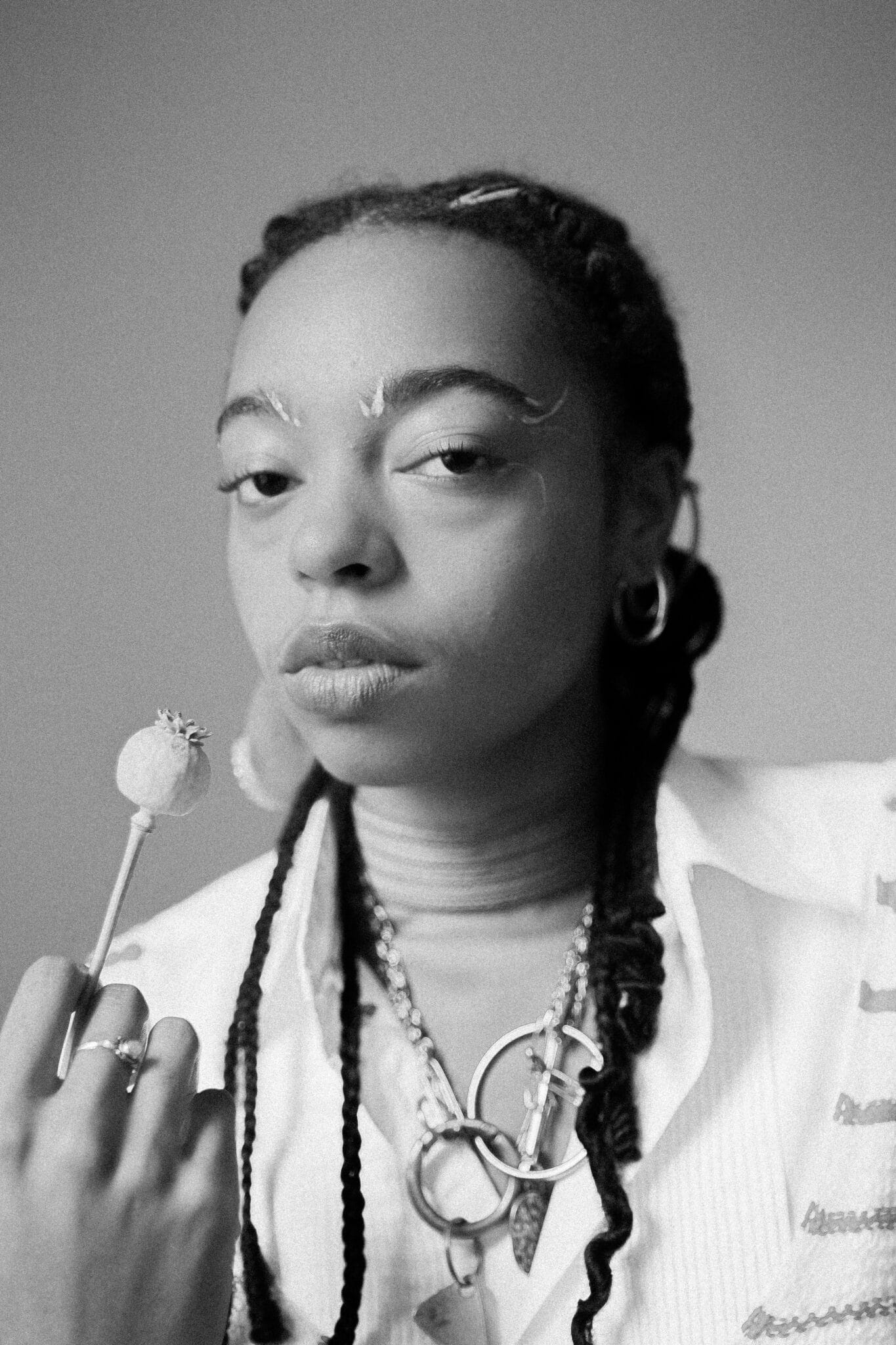
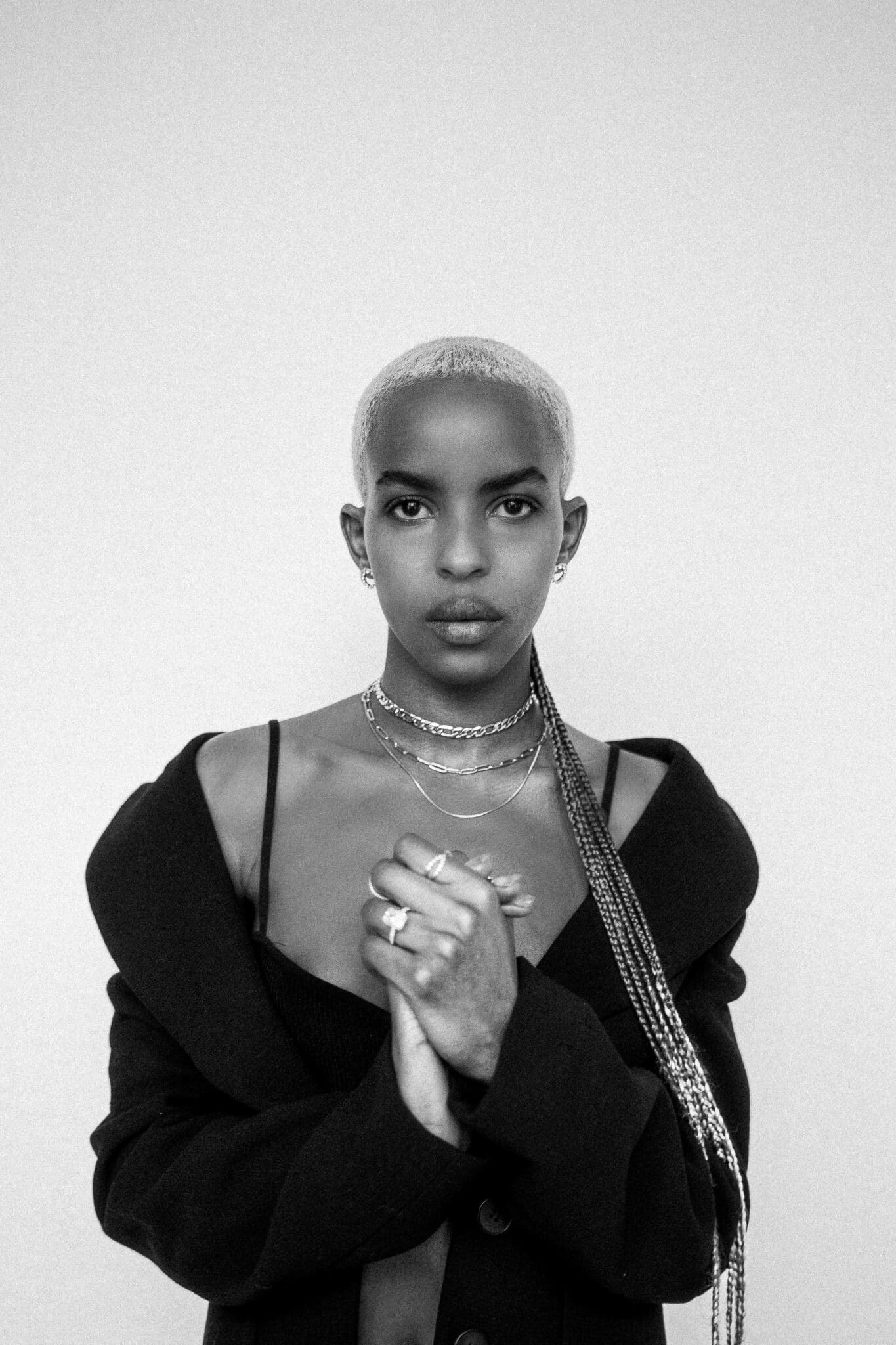
Who and what do you want to capture with your photography?
For years, a big dream of mine has been to travel the world and take lots of portraits of people from different places. Of course, it's been done already, but I feel the difference emerges in how you photograph people. I would love to visit Latin America next and travel to places like Mexico, Brazil, Bolivia, Colombia, and Cuba. There are also several celebrities I'd like to work with because their personality and boldness inspire me – women who have a significant presence in the Black community, like Angela Bassett, Viola Davis, Erykah Badu, Solange, and Tracee Ellis Ross.
One of the reasons you pursued photography is the lack of cultural representation and identification you experienced while growing up. How does it feel to see your pictures all over the Internet?
I honestly feel like I'm not where I want to be in my career, but sometimes people remind me of everything I've accomplished. As an artist, I always doubt myself but people loving my work and wanting to use it is a kind of confirmation, reminding me that I am as good as I think I am. Because I know I'm good – but I wonder if I'm good enough for the world I live in. So when other people speak about my work, it feels fantastic and gratifying. The representation or ratio of Black photographers – and Black female photographers – isn't equal to our white counterparts at all. I see a lot of change in front of the camera, but we must work harder for the changes behind it.

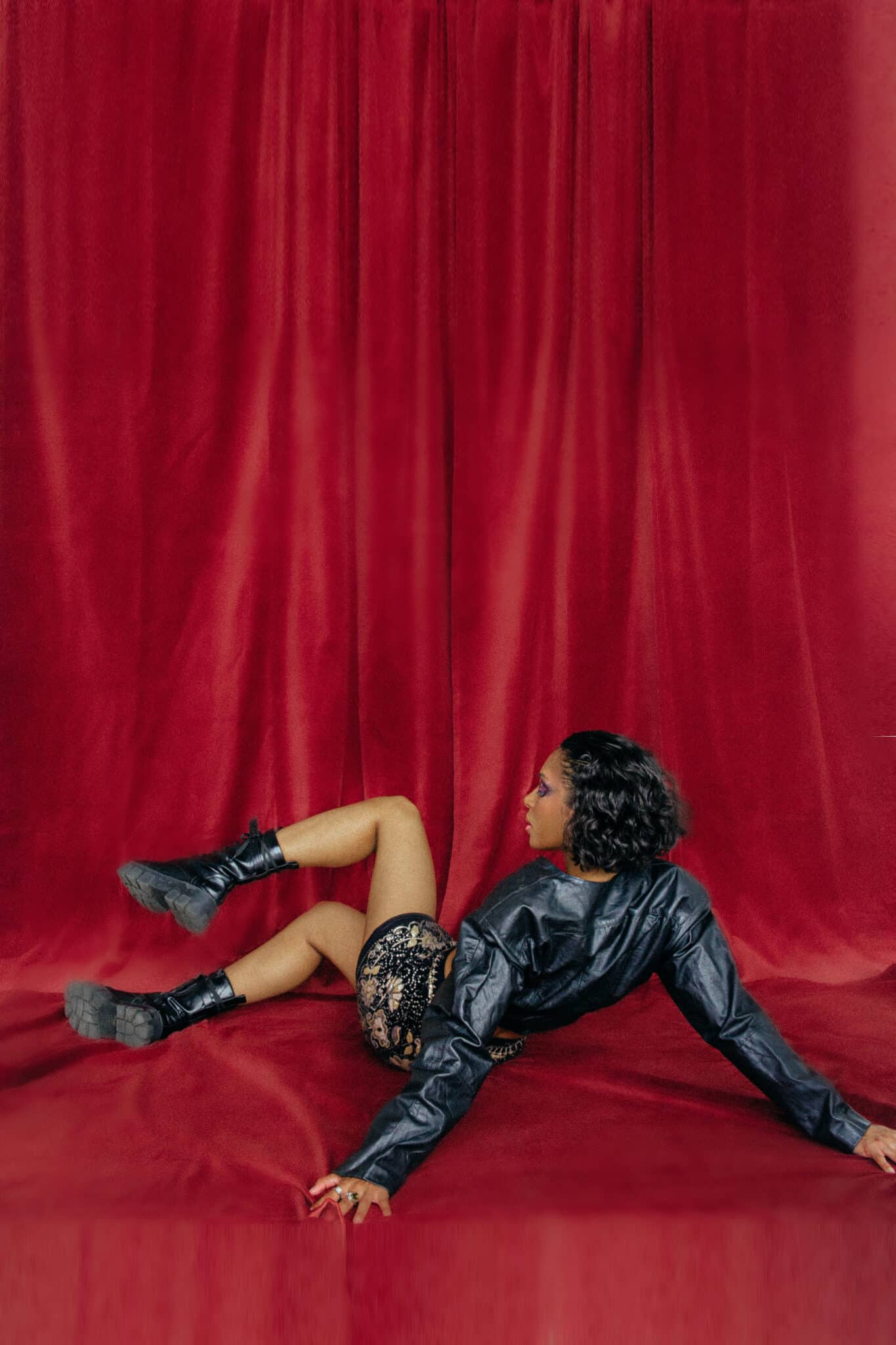
How does your queerness influence your work?
I'd like to quote bell hooks here:
(...) queer not as being about who you are having sex with,
that can be a dimension of it,
but queer as being about the self
that is at odds with everything around it
and has to invent and create
and find a place to speak
and to thrive and to live.
This definitely plays a role in my work. My work is very representation oriented, and I believe it's important to tell everyone's story. The industry doesn't do a good job with that, and the lack of representation gives the impression that some stories don’t matter. This isn't ok. I want to create enough space for people to tell their stories, a space where they can thrive.
You've done a project on queer love for the Artist Development Fund. Why was that important to you?
I started the project in 2018 – having documented Black couples before, I found that I wanted to capture more people from my community because, at the time, queer love was rarely documented. It's important to tell queer stories and queer Black stories because I find that we don't learn anything about queer Black history at all. It would be beautiful if future generations got to see these pictures. I love capturing the intimacy between partners, and the ways they interact with each other.
What or who inspires you in your life and work? How and who do you want to inspire with your work?
I find it very inspiring to see Black and Brown people thriving. Especially since so many industries are very hard to get into. I'm also inspired by challenging moments, like when you overcome a tough situation but still have the strength to pick yourself up and carry on.
Personally, I would like to inspire people to be their best selves. We're always told what to do; learning to let go of that and align more with yourself is a significant step. With my work, I want to document what's beautiful, what makes us feel alive and what excites us.
How does your queerness influence your work?
I'd like to quote bell hooks here:
(...) queer not as being about who you are having sex with,
that can be a dimension of it,
but queer as being about the self
that is at odds with everything around it
and has to invent and create
and find a place to speak
and to thrive and to live.
This definitely plays a role in my work. My work is very representation oriented, and I believe it's important to tell everyone's story. The industry doesn't do a good job with that, and the lack of representation gives the impression that some stories don’t matter. This isn't ok. I want to create enough space for people to tell their stories, a space where they can thrive.
You've done a project on queer love for the Artist Development Fund. Why was that important to you?
I started the project in 2018 – having documented Black couples before, I found that I wanted to capture more people from my community because, at the time, queer love was rarely documented. It's important to tell queer stories and queer Black stories because I find that we don't learn anything about queer Black history at all. It would be beautiful if future generations got to see these pictures. I love capturing the intimacy between partners, and the ways they interact with each other.
What or who inspires you in your life and work? How and who do you want to inspire with your work?
I find it very inspiring to see Black and Brown people thriving. Especially since so many industries are very hard to get into. I'm also inspired by challenging moments, like when you overcome a tough situation but still have the strength to pick yourself up and carry on.
Personally, I would like to inspire people to be their best selves. We're always told what to do; learning to let go of that and align more with yourself is a significant step. With my work, I want to document what's beautiful, what makes us feel alive and what excites us.
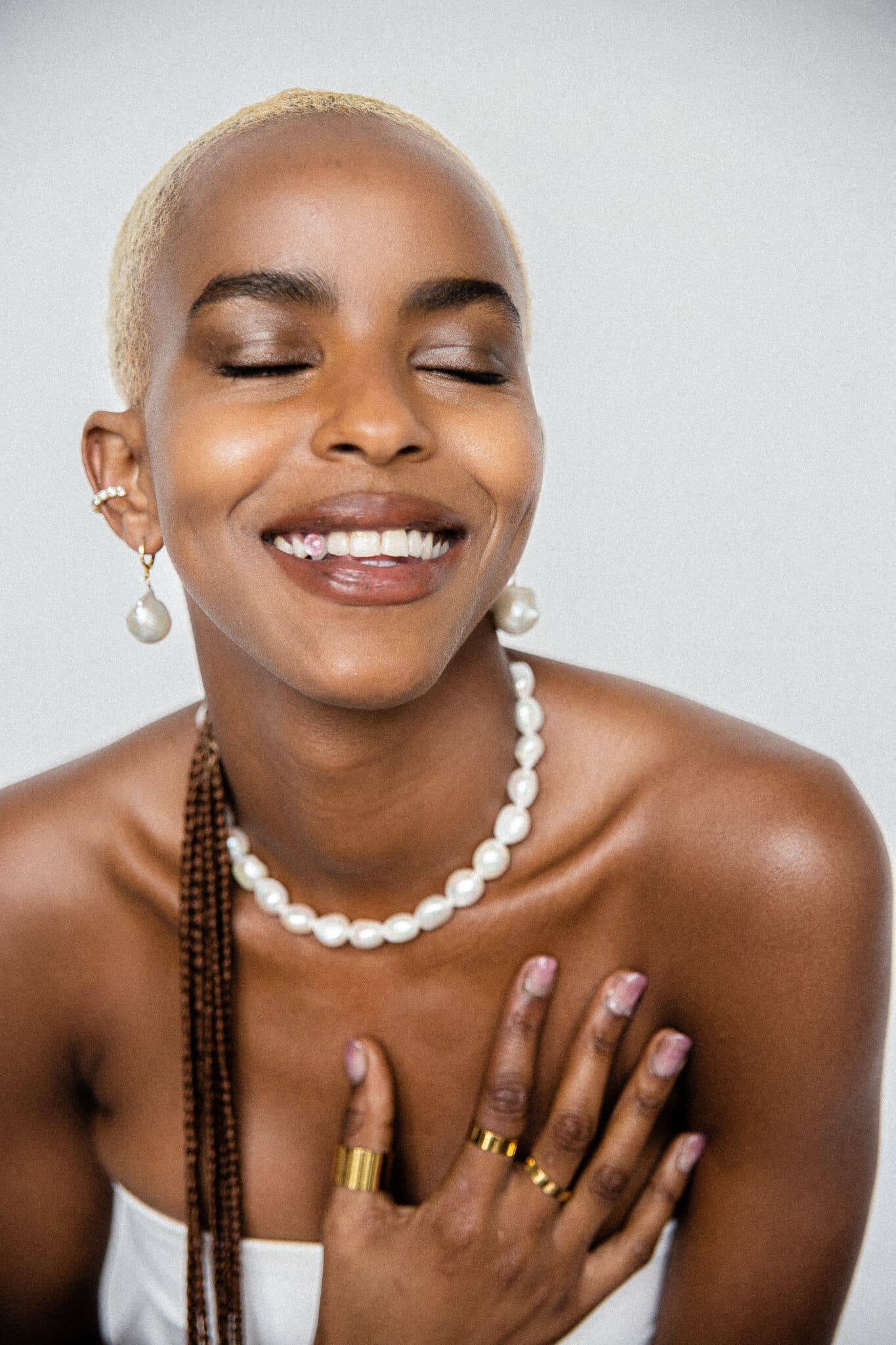
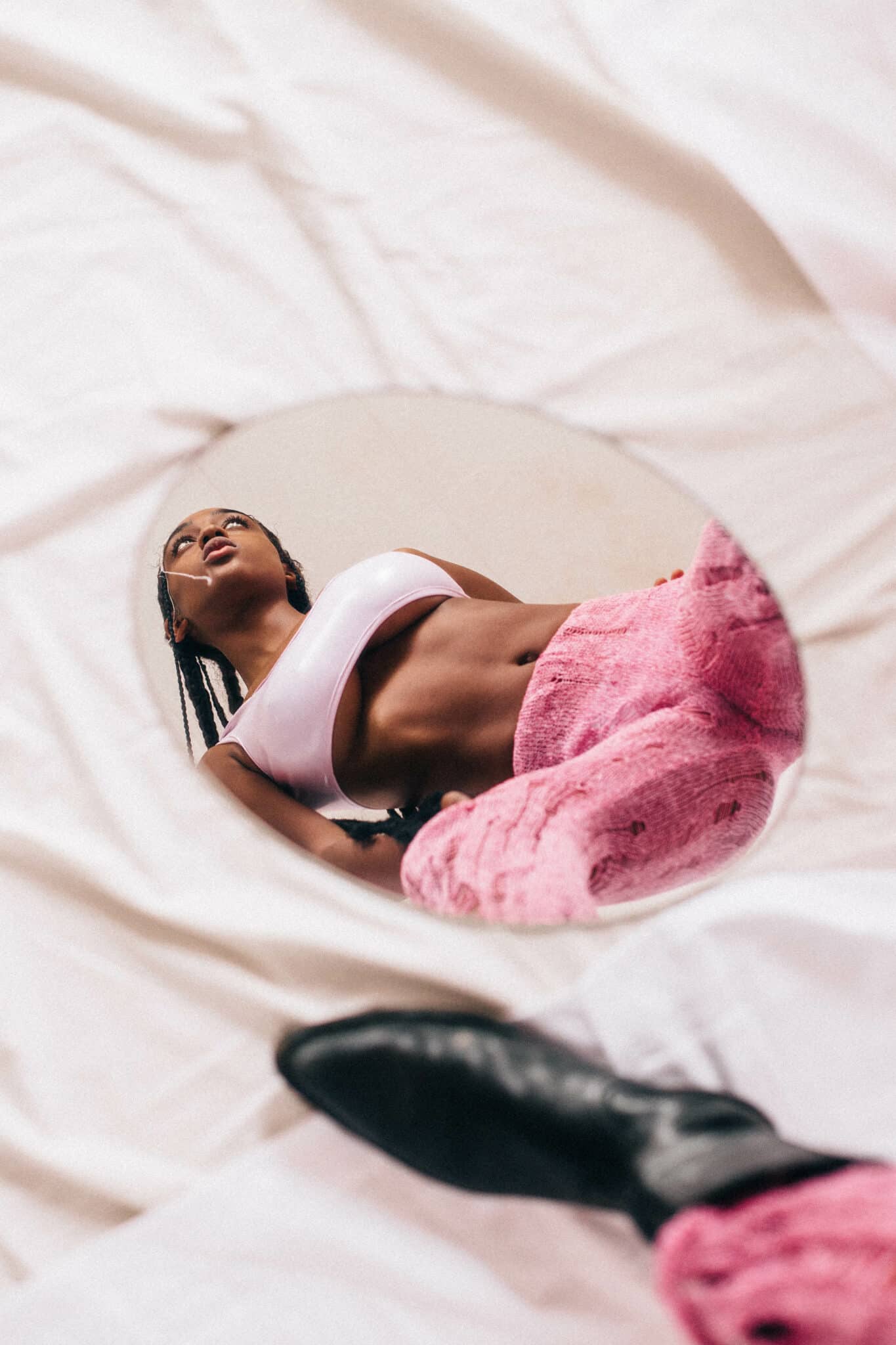
What is the future you'd like to see for the QTBIPOC community?
I wish for our prayers to be answered, for us to live genuinely peaceful lives. To live comfortable and carefree lives, without ever being doubted or questioned by other communities. Without fear or worry. We belong just as much.
Do you want to tell us about one of your happiest moments?
Moving to the UK is definitely one of those moments. It was just under a year after I had open heart surgery. Having the privilege to move to London after such an eventful experience and do what I want with my career has been intense but also very joyful. I'm very grateful for the life I'm choosing for myself. Here's to more happy moments.
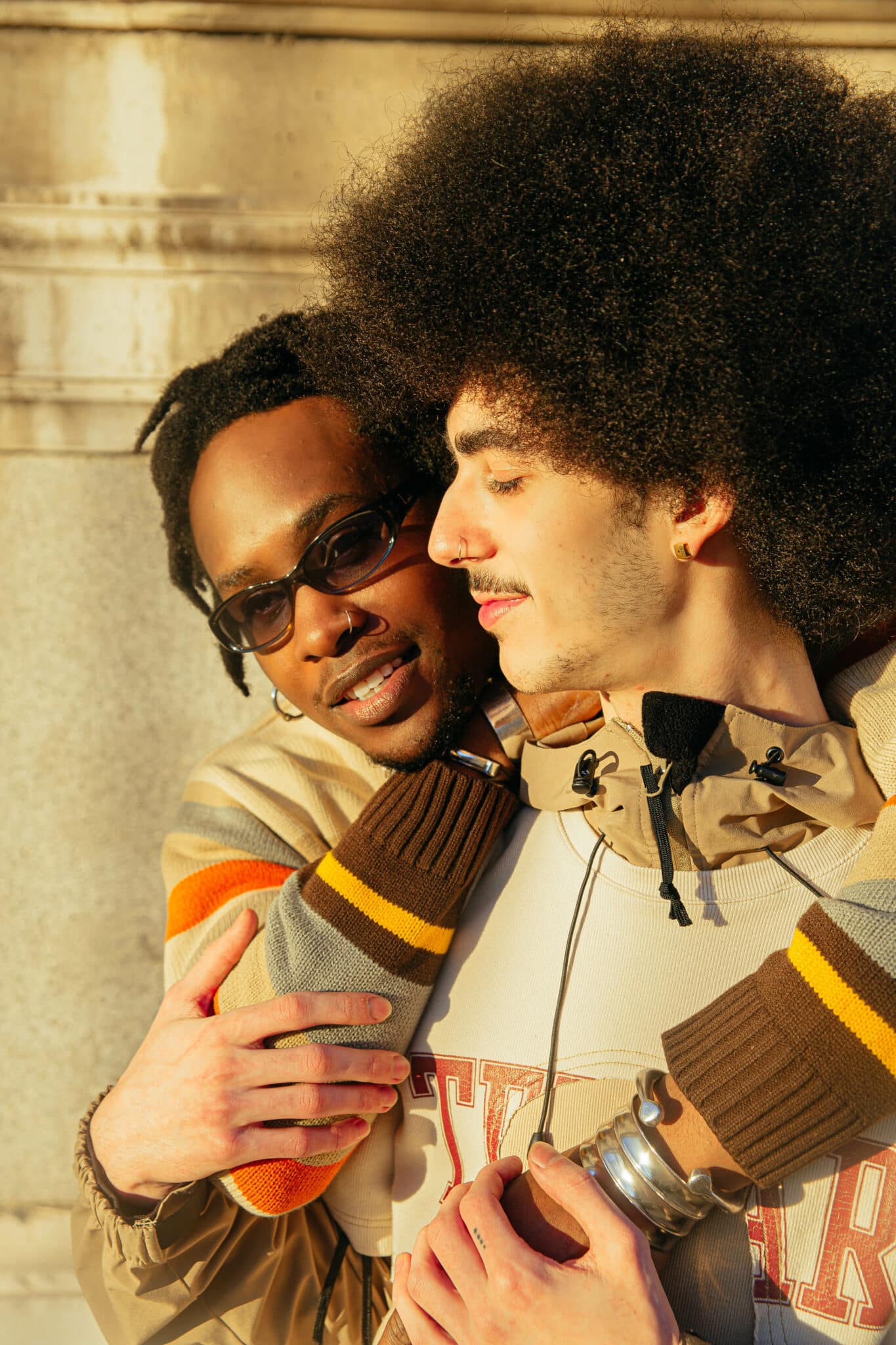
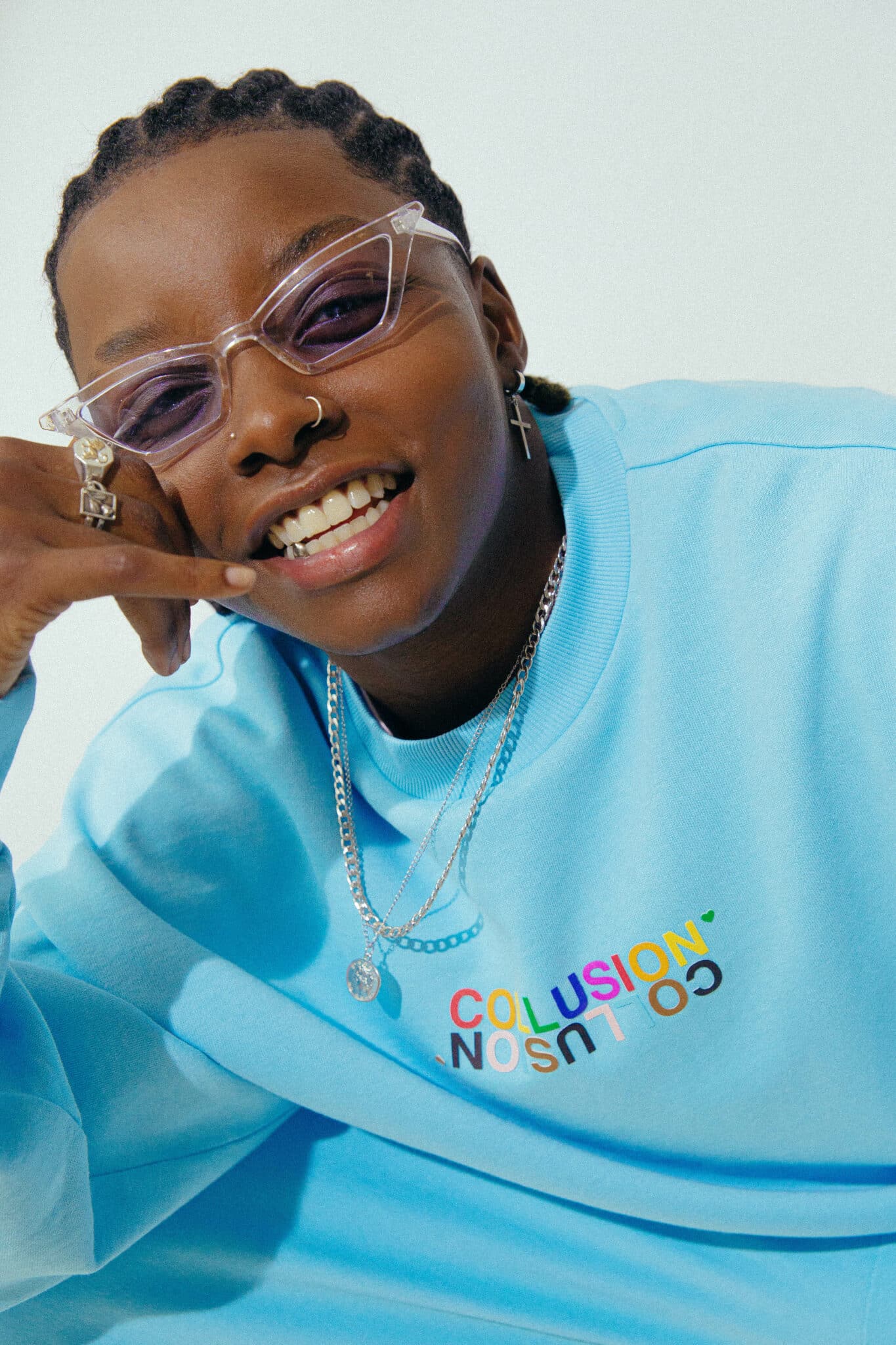
Get DADDY in your Inbox
Stay in the loop by subscribing to our newsletter
